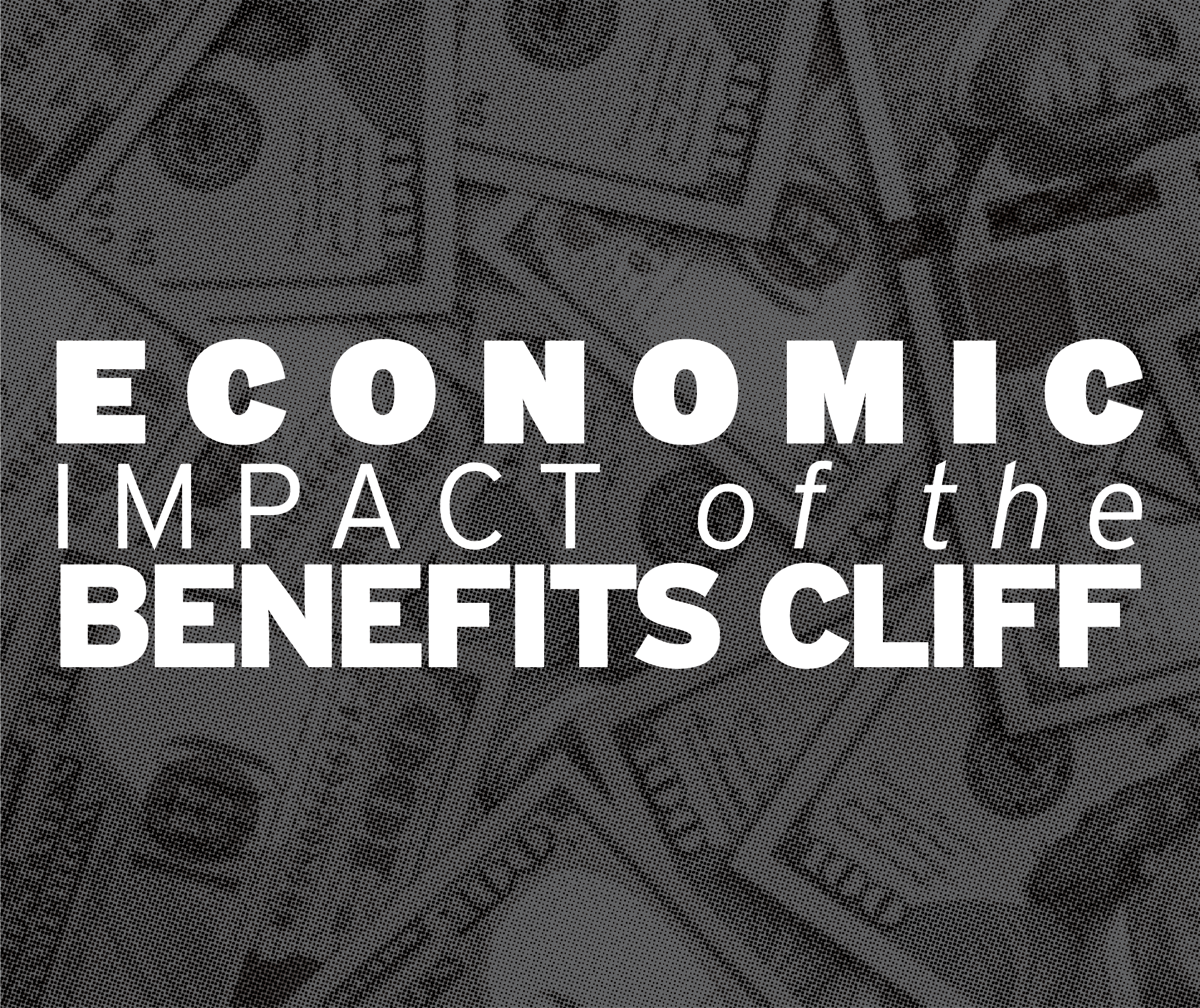The Economic Impact of the Benefits Cliff
 The Benefits Cliff hurts both the hard-working individuals and families who end up unable to make ends meet after earning a raise and, in turn, the economy as a whole. The cliff deters workers from advancing financially in their careers thereby perpetuating their need to stay on public assistance. This costs all of us more in the end. Eliminating the cliff helps individuals find meaningful advancement in their financial situation and can lead to a decreased tax burden on us while allowing tax revenue to be redeployed in other constructive ways.
The Benefits Cliff hurts both the hard-working individuals and families who end up unable to make ends meet after earning a raise and, in turn, the economy as a whole. The cliff deters workers from advancing financially in their careers thereby perpetuating their need to stay on public assistance. This costs all of us more in the end. Eliminating the cliff helps individuals find meaningful advancement in their financial situation and can lead to a decreased tax burden on us while allowing tax revenue to be redeployed in other constructive ways.
- Tax revenue is being left on the table.
When an employee’s wage increases, so does tax revenue. These revenue gains would be realized when an employee ceases on career advancement opportunities. That said, when an employee turns down an opportunity to avoid the loss of social support associated with the benefits cliff, so too is there a loss in that revenue. Every day, individuals in our community and around the country turn down opportunities to earn a higher salary and advance their career due to the adverse effects of the benefit cliff. Instead of a smooth transition to economic independence, the benefits cliff leaves them stranded and unable to make ends meet with the sudden loss of social support benefits. - We’re spending too much on social services.
The Economic Policy Institute found that for every $1 that wages rise among workers in the bottom three wage deciles, government assistance program spending falls by at least $5.2 billion, not including the value of Medicaid benefits. Yet, again, workers are turning down wage increases to avoid the loss of benefits funded by this $5.2 billion. An alternative design with benefits phasing out as wages increase would close this gap and allow for marginal wage increases and government cost savings, which benefits all involved. - We spend a lot on social service programs
We have already outlined how addressing the benefits cliff decreases the amount we spend on public benefits. Doing so would also lessen our dependence on social service programs aimed at poverty. The tens of millions of dollars spent on such initiatives in Greater Rochester alone could be allocated to efforts like enhancing infrastructure, improving our power grid, and investing in quality of life. If employees were not turning down new jobs, higher salaries, and increased hours, these opportunities would come more naturally to them without the need for government and philanthropic programs incentivizing them.
While the above studies focus on the Federal government, experts from the National Conference of State Legislators suggest that State and local governments would experience similar benefits to budgets by smoothing the benefits cliff. They note, “legislators could consider using fiscal notes to require evaluation of the long-term budgetary impact of benefits cliffs reforms achieved through new workers entering the labor market and reduced reliance on the social safety net.”
We have a vested interest in finding a way to address this issue. To learn more about Greater Rochester Chamber’s ongoing efforts to address the benefits cliff with our community partners, please visit GreaterRochesterChamber.com/Benefits-Cliff.
